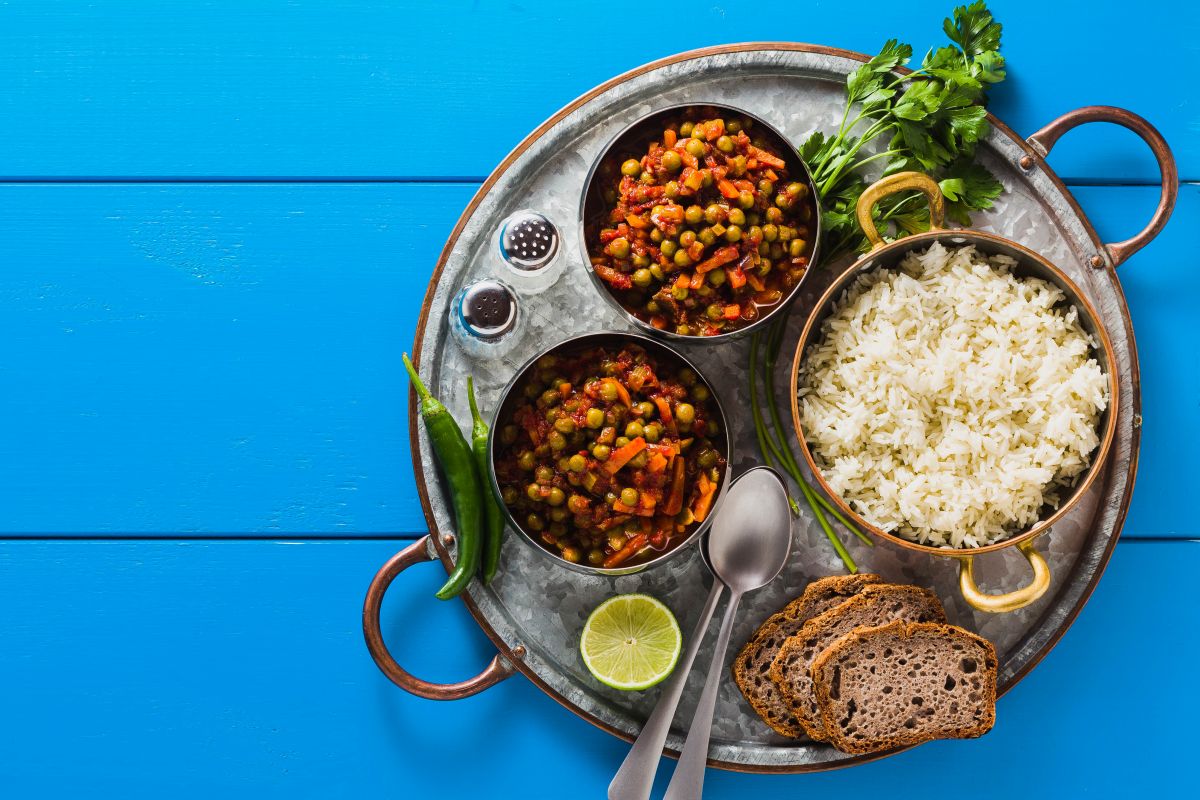Mamata Banerjee composes song on World Music Day
World Music Day was observed in the city with great enthusiasm.
Fasting is an act of sanctification that establishes harmonious coordination between body, mind and soul

( Representational Photo: Getty Images)
Navratri is a time when devotees worship Goddess Durga. Fasting has been a part of holistic religious practice during this sacred phase since ancient times. Sacrificing a few foods during Navratri is an act of denial of materialistic needs to attain higher spiritual quests and receive the blessings of the supreme power.
Here are a few foods that are not allowed to be consumed during Navratri fast:
Advertisement
· Flour and grains: Grains like wheat and rice are restricted during these fasts. Rice flour, whole wheat flour, all-purpose flour, corn flour, chickpea flour and semolina are not permissible either. These grains and flours slow down the process of digestion. Also, as per religious beliefs, abstinence from a few types of grains and flours leads to purification of the soul spiritually and helps strengthen the will power that brings us closer to the almighty. There are alternatives like water chestnut flour, buckwheat flour, amaranth and samak rice. These foods are the lighter choices to help the body to easily digest this food stuff.
Advertisement
· Vegetables: Onion and garlic are strictly prohibited during Navratri fasting. All Navratri foods are prepared without onion and garlic since they are considered ‘Taamsic’ in nature. Other vegetables that are considered Taamsic are shallots, mushrooms, eggplants and okra (bhindi). Also they are known to produce heat in the body. As per Ayurveda, onion and garlic attract and absorb negative energies in the body and therefore they should be avoided to adapt the body to the changing season and improve immunity. Vegetables which are considered Saatvik and can be consumed in Navratri fasting include potato, sweet potato, tomato, pumpkin, bottle gourd, raw banana, raw papaya, arbi, ginger, cucumber, yam and lemons. These veggies provide lots of energy, keeping you hydrated.
· Table salt: Table salt is created by evaporation and is also iodised. It is processed to remove contaminants with the help of few treatments. Navratri fasting emphasises on the consumption of pure and Saatvik foods that are light on the digestive system. Consumption of rock salt is allowed during this festival fasting. It is the purest type of salt known for its unprocessed form and it also contains cooling properties. It is low in sodium and high in potassium, helps keep a balance of electrolytes in the body.
· Spices: If you are fasting, you have to keep away from a few spices, such as turmeric, mustard seeds, curry powder, asafoetida, fenugreek seeds, coriander powder and garam masala. These spices produce heat in the body. Cumin seeds, cumin powder, black pepper powder and green cardamom are the spices used during Navratri fasting. Herbs like ginger roots, green chillies, coriander leaves and lemon juice are commonly used.
· Legumes and pulses: Legumes and lentils are something you would need to completely avoid during Navratri fast.
· Egg, non-vegetarian food and alcohol: These are completely prohibited during Navratri fasting. These foods produce heat and toxins in the body and take a much longer time to digest. They are high in Taamsic content and create irritation and negativity. Lack of positivity disturbs the spiritual experience of the person who is fasting.
· Oils: Pure ghee and peanut oil are commonly used during these fasts. Refined and seed-based oils such as vegetable oil, sunflower oil and canola oil should not be consumed.
The religious belief behind not eating these foods go hand in hand with scientific logic. Navratri is celebrated twice a year and both the phases fall during the change of season. Eating foods like grains, onion, garlic, eggs and meat etc. should be avoided during a seasonal change when our bodies tend to have low immunity. These foods attract and absorb negative energies and make us more susceptible to fall sick. Give yourself a much needed break from these regular food habits and choose Saatvik food ingredients which are full of nutrients, easy on stomach and light on digestive system.
Shubh Navratri!
Advertisement